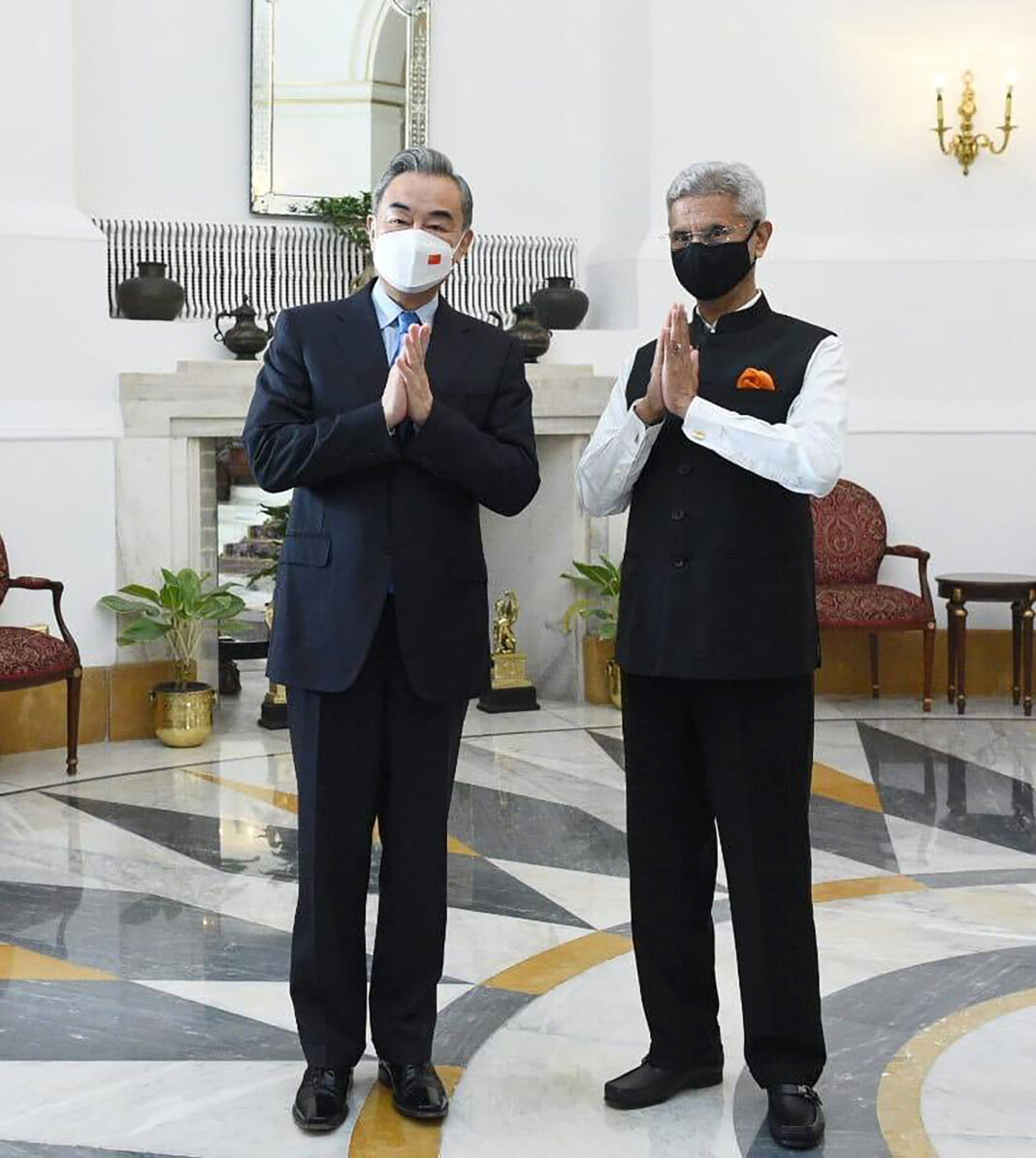NEW DELHI: Indian Foreign Minister Subrahmanyam Jaishankar told his Chinese counterpart on Friday that a return to normalcy in New Delhi-Beijing ties depended on disengagement of troops from a face-off on their remote border.
Chinese Foreign Minister Wang Yi arrived in New Delhi on an unannounced trip on Thursday evening. He is the most senior official from Beijing to visit India since border tensions in the northern Himalayan region of Ladakh in April 2020 escalated into deadly clashes.
The face-off led to a deterioration in relations between the Asian giants and the deployment of tens of thousands of extra troops into Ladakh. Senior military commanders from both sides have engaged in 15 rounds of talks to defuse tensions, but there has been little progress.
Jaishankar told reporters after his meeting with Wang that New Delhi wanted a “stable and predictable relationship.”
“It cannot be normal if the situation in the border areas is abnormal. And surely the presence of a large number of troops there, in contravention of agreements, is (an) abnormality,” he said. “Restoration of normalcy will obviously require restoration of peace and tranquility.”
He said the current situation was a “work in progress obviously at a slower pace than desirable” and Friday’s talks with Wang were aimed at expediting the process.
Wang, who also met India’s national security adviser, Ajit Doval, said in a statement that the two sides should resolve their differences.
His discussion with Jaishankar also covered their governments’ approaches to Russia’s invasion of Ukraine.
“Both of us agreed on the importance of an immediate ceasefire as well as a return to diplomacy and dialogue,” Jaishankar said.
Foreign policy experts welcomed the renewed engagement between India and China, but cast doubt over any sudden positive changes.
“I am skeptical that we will see a fundamental shift in the trajectory of India-China relationship. Even if today we agree on a protocol of going back to status quo on April 2020, there is still a long way to go before we can see normalization,” Manoj Kewalramani, a China expert at the Bangalore-based public policy think tank Takshashila Institution, told Arab News.
He added that the 2020 clashes in the Galwan Valley ruptured a long-established trust between the two countries. “What happened in 2020 in Galwan was that established protocols, those established practices, fundamentally broke down, which broke down the trust between the two armed forces, which broke down the trust between two governments.”
Kewalramani said: “To build that is a long-term process so even if you see disengagement and de-escalation after the visit, (of) which I am very skeptical, it’s going to be a long process to have that normalization come back.”
Prof. Srikanth Kondapalli, a Chinese studies lecturer at Jawaharlal Nehru University in New Delhi, told Arab News that Yi’s visit and meetings with Indian officials were a “sounding box on each other’s concerns on the things that have happened.”
“I think the meeting with the national security adviser and the external affairs minister was very frank and stormy because of so many issues, especially the Galwan incident, which has resulted in lots of ill will for both sides,” he said.
He said that Wang’s trip was related to an upcoming summit of the BRICS, a grouping made up of Brazil, Russia, India, China and South Africa, which Beijing is scheduled to host this year.
“The visit is coming in the background of the Russian invasion of Ukraine,” he said, adding: “The Ukrainian incident is having a huge impact on the visit.”




